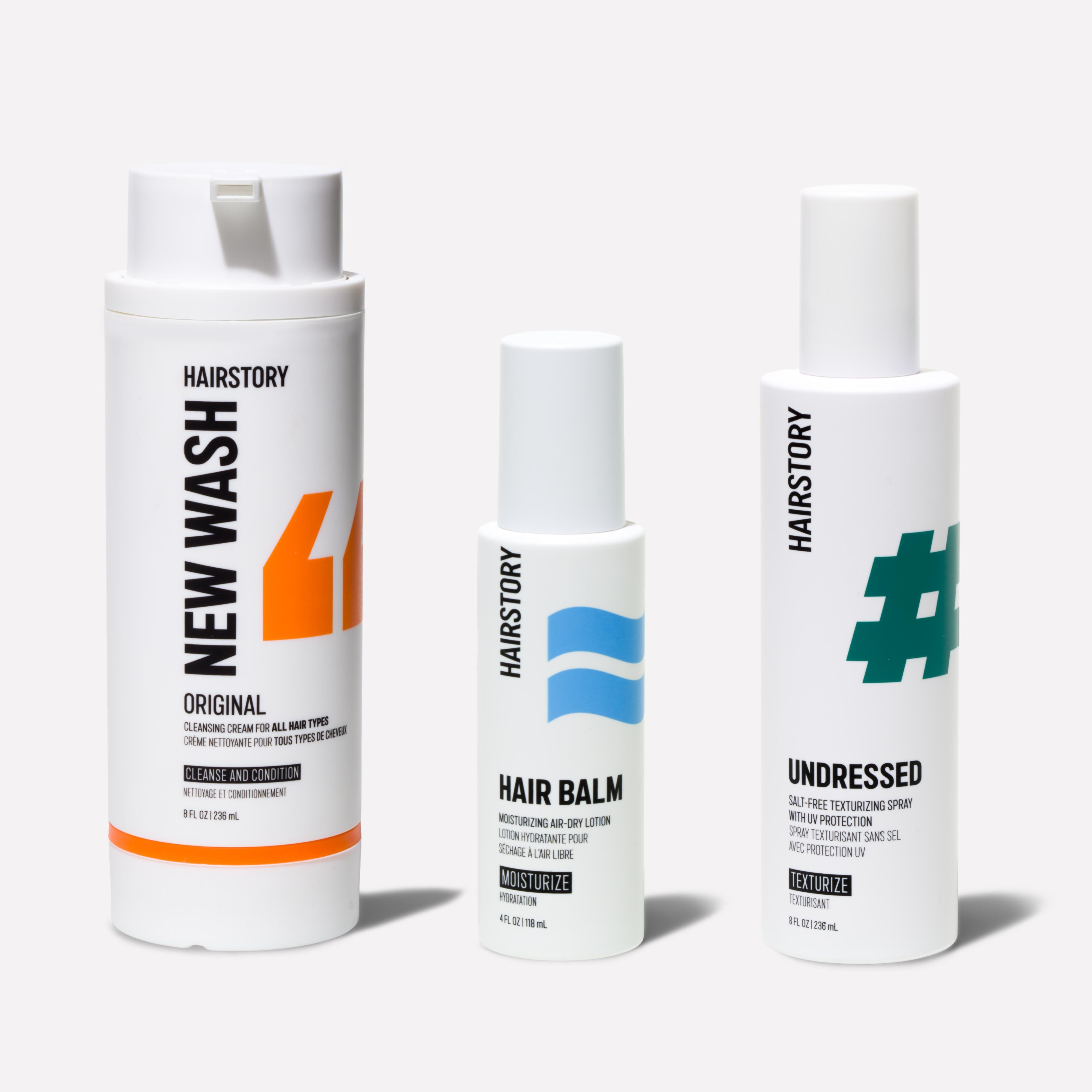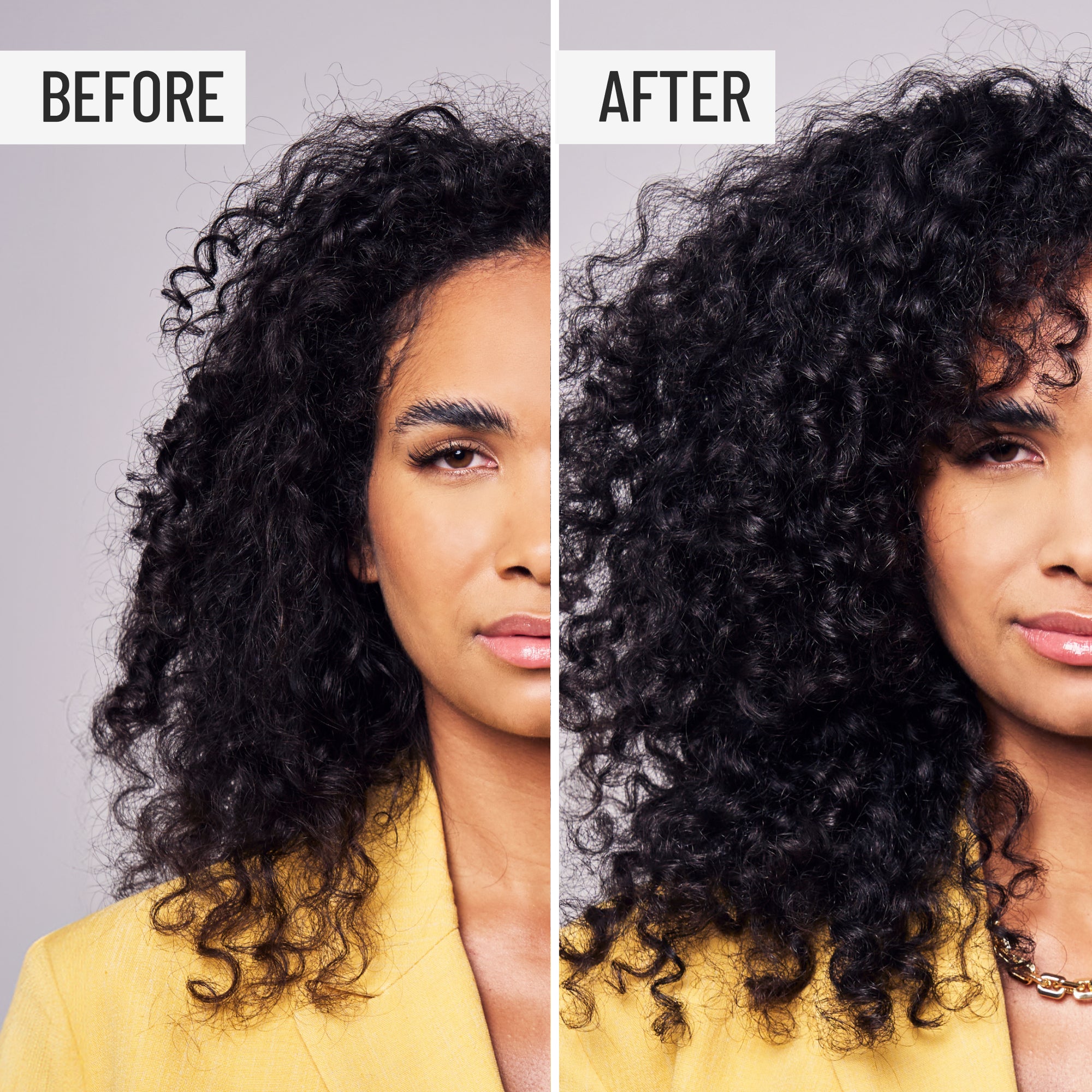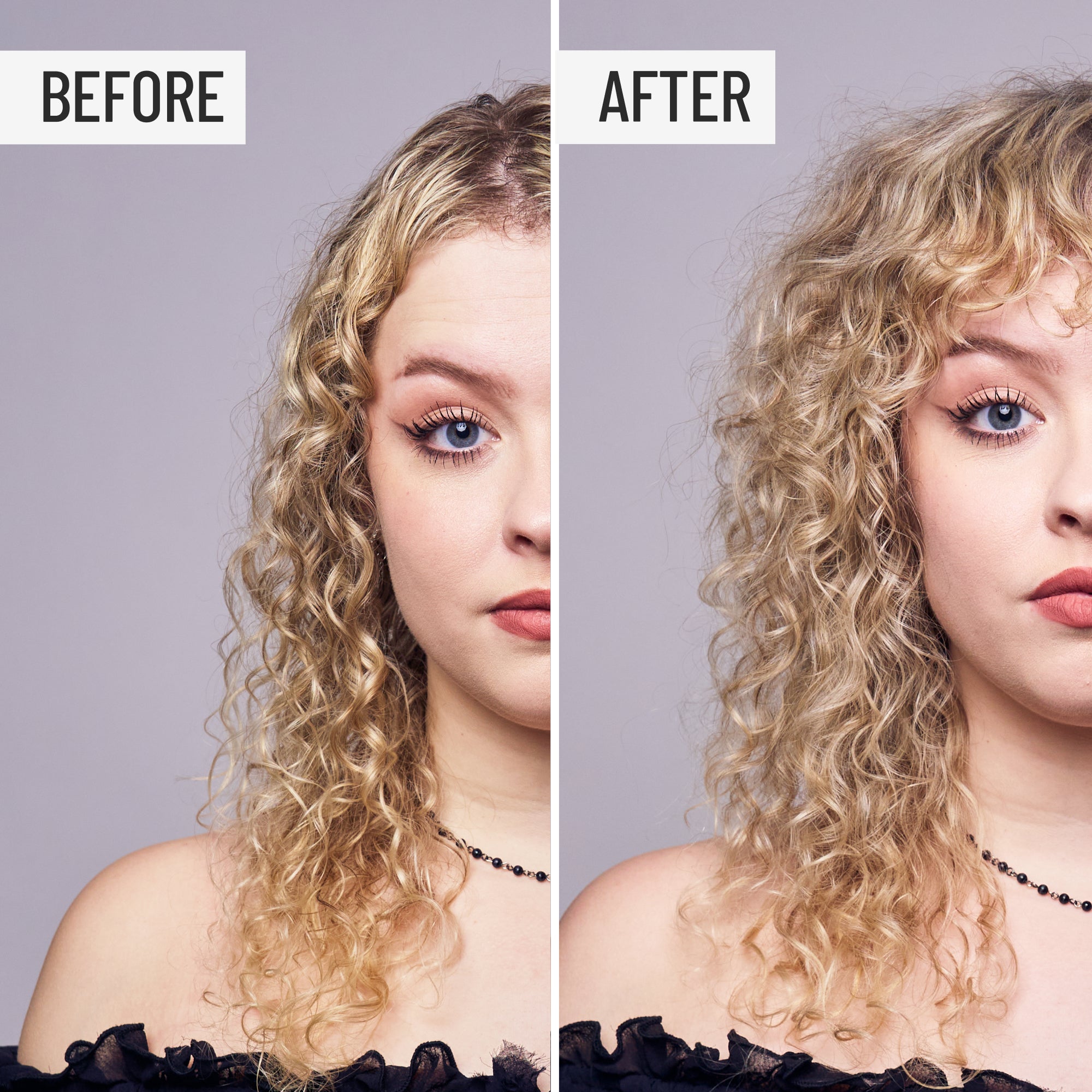Congratulations! You’ve woken up to the idea that shampoo might not be the innocent, everyday product we’ve all been happily using for the last one hundred years, and you’re beginning the search for alternative ways to obtain clean hair like hair cleansing. We’re here to show you that washing hair without shampoo is, in fact, possible and can be achieved without the use of traditional hair products.
You’ve likely come across natural hair care remedies for using apple cider vinegar, baking soda, lemon, egg, and other ingredients normally found in the pantry. While food and beauty are absolutely linked, and there’s no harm in making yourself a hair salad, it can be time-consuming, oddly odorous, and awkwardly messy. We’ll break down each option for you here.
Before we jump into how to wash your hair without shampoo, a quick science refresher is helpful: pH is an important factor when determining suitability for a hair cleaner. The pH scale goes from 0 to 14. Water is a neutral 7; anything below that is acidic and anything above is basic or alkaline. Human skin is ideally slightly acidic to discourage fungus and bacteria. Understanding your hair’s pH can also be helpful if you want to make your hair grow faster.
APPLE CIDER VINEGAR
This humble substance is credited with everything from cleaning homes to treating inflammation. Hair wise, apple cider vinegar (ACV) is believed to lower pH to bring hair back into balance and support smoothness, strength, and shine. It is also believed to control bacteria or fungi that can lead to scalp and hair problems; to supplement essential minerals manganese, calcium, and iron to promote shine and strength; and help hair color last longer.
However, if you’re not careful, you can get burned. Literally. The acetic acid in ACV is known to be caustic, which means it may inflame your skin rather than soothe it. Pure ACV will surely degrade your hair, so always dilute it before using it topically, or mix it with a carrier oil. Never allow contact with your eyes, if you do, wash out with water immediately. We also suggest steering clear of white vinegar; it’s too acidic.
If you’re not careful, you can get burned. Literally. ACV is known to be caustic, which means it may inflame your skin rather than soothe it.
Some people use diluted lemon juice, as ancient Egyptians did, instead of apple cider vinegar to help rid hair of excess oil treat oily hair by squeezing the juice of a lemon into a cup of warm water, massaging and rinsing. Or, a mixture of lemon juice and coconut oil can be applied for 15 or 20 minutes, then you thoroughly.
At the end of the day, ACV can remove product build-up and exfoliate dead skin cells, but it does not actually give you clean your hair.
BAKING SODA
A favorite shampoo replacement is plain old baking soda. Its high pH of 9 makes it an effective cleanser. But that same pH can lead to dryness, frizziness, and damage, and the crystal structure of baking soda can be abrasive to the scalp.
Baking soda will likely throw your pH out of balance, so you’ll have to neutralize it with an apple cider vinegar rinse. And hair may feel dry, so you’ll need to also finish with a conditioner. See more about conditioner on our blog: What does conditioner do?
DRY SHAMPOO
Many people are quick to recommend dry shampoo or hair powder as an alternative to liquid hair care solutions. It is a great way to refresh hair from time to time and absorb oil when you’re in a rush, but be aware that dry shampoo does not actually cleanse. In fact, if you rely on dry shampoo exclusively, you’re in danger of “suffocating” your hair and scalp and clogging your hair follicles, which can lead to all sorts of problems. Bottom line: consider the powders plan B back-ups when wet washing isn’t possible.
Dry shampoo binds to oil and pulls it away from the hair and scalp and hair; unless you brush it out thoroughly, it won’t remove oil and can be drying, resulting in an itchy scalp. Dead skin and styling products should be removed regularly to prevent the blockage of hair follicles, which can lead to inflammation and dandruff.
OIL-BASED CLEANSING
With more and more people searching for detergent-free alternatives, we developed New Wash. Oil-based cleansing can promote healthy hair by providing moisture to the cuticles. The perfect degree of cleansing – at the ideal pH – is performed by a unique compound based on Aloe Vera juice and a blend of essential oils that prevent an itchy scalp, reduce frizz, boost shine, and provide anti-inflammatory properties to help prevent or improve skin conditions, including psoriasis and seborrheic dermatitis.
How often should you wash your hair using these methods? Just as if you were using a normal product, you never want to wash your hair too frequently. It is also important to be aware of your hair type and know if the products you use to wash hair will strip your hair of its natural moisture. We hope your search for a shampoo replacement ends here, and we wish your hair many happy, suds-fee days ahead.






























